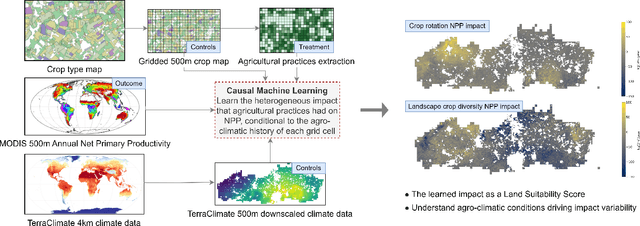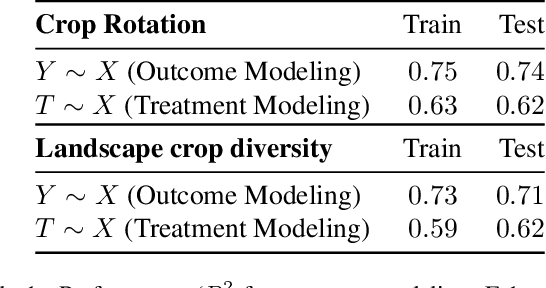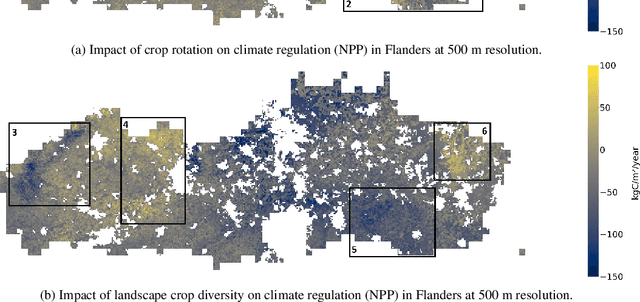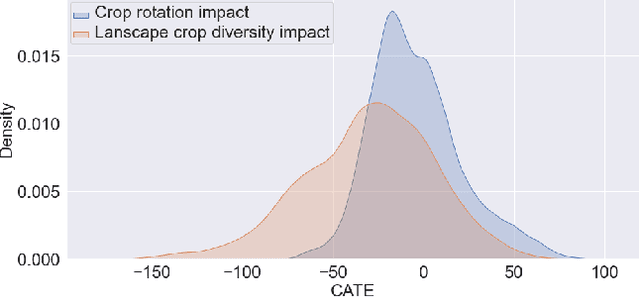Roxanne Suzette Lorilla
Personalizing Sustainable Agriculture with Causal Machine Learning
Nov 06, 2022Abstract:To fight climate change and accommodate the increasing population, global crop production has to be strengthened. To achieve the "sustainable intensification" of agriculture, transforming it from carbon emitter to carbon sink is a priority, and understanding the environmental impact of agricultural management practices is a fundamental prerequisite to that. At the same time, the global agricultural landscape is deeply heterogeneous, with differences in climate, soil, and land use inducing variations in how agricultural systems respond to farmer actions. The "personalization" of sustainable agriculture with the provision of locally adapted management advice is thus a necessary condition for the efficient uplift of green metrics, and an integral development in imminent policies. Here, we formulate personalized sustainable agriculture as a Conditional Average Treatment Effect estimation task and use Causal Machine Learning for tackling it. Leveraging climate data, land use information and employing Double Machine Learning, we estimate the heterogeneous effect of sustainable practices on the field-level Soil Organic Carbon content in Lithuania. We thus provide a data-driven perspective for targeting sustainable practices and effectively expanding the global carbon sink.
Towards assessing agricultural land suitability with causal machine learning
Apr 27, 2022



Abstract:Understanding the suitability of agricultural land for applying specific management practices is of great importance for sustainable and resilient agriculture against climate change. Recent developments in the field of causal machine learning enable the estimation of intervention impacts on an outcome of interest, for samples described by a set of observed characteristics. We introduce an extensible data-driven framework that leverages earth observations and frames agricultural land suitability as a geospatial impact assessment problem, where the estimated effects of agricultural practices on agroecosystems serve as a land suitability score and guide decision making. We formulate this as a causal machine learning task and discuss how this approach can be used for agricultural planning in a changing climate. Specifically, we extract the agricultural management practices of "crop rotation" and "landscape crop diversity" from crop type maps, account for climate and land use data, and use double machine learning to estimate their heterogeneous effect on Net Primary Productivity (NPP), within the Flanders region of Belgium from 2010 to 2020. We find that the effect of crop rotation was insignificant, while landscape crop diversity had a small negative effect on NPP. Finally, we observe considerable effect heterogeneity in space for both practices and analyze it.
 Add to Chrome
Add to Chrome Add to Firefox
Add to Firefox Add to Edge
Add to Edge